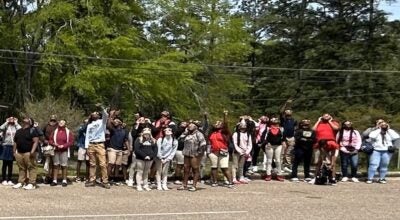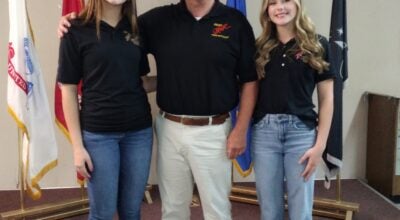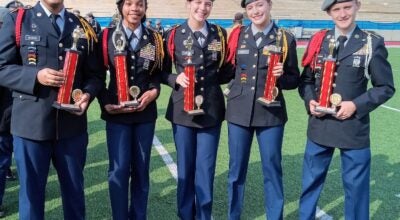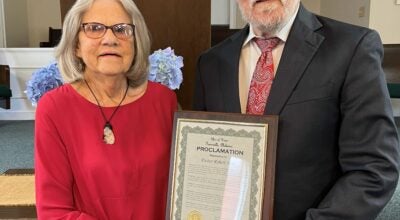Son remembers longtime rec director, Jerome Harris
Published 6:27 pm Friday, December 9, 2016
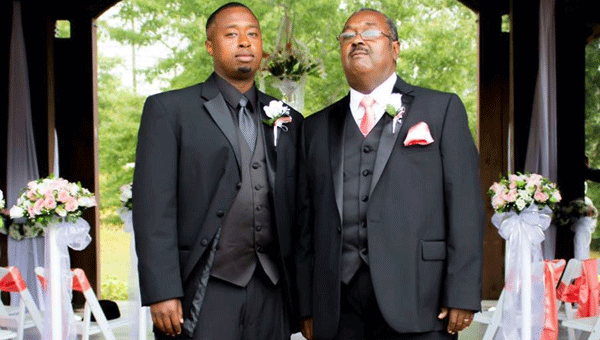
Jerome “Three” Harris III recalled fond memories of his father, longtime Greenville Parks and Rec director Jerome Harris. Harris passed away Nov. 26, 2016.
Jerome “Three” Harris III tends to his business on Jameson Lane on a chilly Thursday evening—perhaps the coldest of the season thus far.
But inside of his establishment, a merry conversation warms the room. The subject is his father, the recently departed Jerome Harris, a longtime contributor to the betterment of the lives of youth within Butler County.
Synonymous with what is often lovingly referred to as simply “the rec,” the former director of the City of Greenville’s Parks and Recreation Department of nearly two decades has left an imprint on the city that goes far beyond his tenure in the director’s seat.
As a youth softball, baseball and basketball coach, Mr. Harris wore several hats. And for his long-term commitment to the city’s youth, a number of honors were bestowed, including a lifetime membership to the Greenville Parks and Recreation Department following his retirement in September 2014 and the renaming of the fields at Dunbar Park to “The Jerome Harris Fields at Dunbar Park” earlier that same year.
But to his son, Mr. Harris was much more than the sum of his accomplishments. For that matter, regarding the man who meant so much to so many, he was even more than a father.
There were many potential words that Harris could use to describe his father, but one immediately sprung to mind.
“Amazing,” Harris said.
“For me growing up with him as my dad, it was amazing. I’m 34 years old, and his job allowed me to be there every day. People say that I lost my dad, but I lost my brother, my best friend, my uncle… I lost everything. I’ve still got my mother, but as far as men-to-men relationships, I lost a lot.”
But for as much as he lost, he gained tenfold in his 34 years of living within his father’s influence.
“I had so many brothers and sisters that it didn’t make any sense,” Harris continued. “Not legally or biologically, but there were just so many people that I grew up with every day. It was all a family, for real. Everyone that went to the rec was family.”
That continued throughout his formative years and, eventually, spilled into a stint as a basketball coach.
“Basketball was something that we did, but a lot of people don’t know that his biggest passion was softball and baseball,” Harris said. “He did basketball because it’s something that I wanted to do, and that’s what he had to embrace to make kids better. A lot of kids graduated because of that.
“He had softball teams and baseball teams, and a lot of guys around here would tell you about it. He loved the game of baseball. I understand that people know him from basketball, but you had to really know him to know that.”
Michael Ball, a former basketball player for Mr. Harris, was one such person whose life was changed for the better because of his influence.
For Ball, and countless others, he was a coach both on and off the court.
“Mr. Harris was a man that everybody looked up to,” Ball said. “Little kids know Mr. Jerome, because he taught everybody. He taught me. Every day you’d see him, he was the same person. He was everybody’s dad.
He taught me basketball from day one. He showed me how to run the triangle defense. He taught me that. If he’d coached high school, he’d be like a Phil Jackson. People would say ‘I want to play for Mr. Harris. He might fuss and do all of that, but I don’t want to play for nobody but Mr. Harris.’”
Rakeisha Smith called the rec her “second home” as a child, and she said that Mr. Harris served as a mentor for not only her generation, but the next one, as well.
“My daughter loved him,” Smith said. “He taught her everything she knows about basketball and softball, and she’s 16 now. When she found out that he’d passed, that hurt her. The only thing she asked was ‘who do we have now?’”
“Even if a child didn’t play well, he taught you the game and made you understand that you did well. Every child played. Even when we were losing, he still gave everyone the opportunity to play. It gave them something to believe in, and not just seeing people on TV playing basketball. He made you feel that ‘one day, I could be those people on TV.’
“He wasn’t just the director of the rec; he was somebody who touched everybody’s heart when it came to sports. He was something special to this city.”
A catalogue of fond memories flood Harris’ mind when recalling his father, but one particular one comes to mind.
“My first college game, I was at Talladega College and I was playing for AUM,” Harris said.
“When we first ran out, he wasn’t there. When I came back out, he was standing right there looking at me smiling. I was like ‘man, he came all the way to Talladega just to see my first game.’ And he never missed a game. Even when I left and went off to college, he was still there.”
And in many ways, he still is.
“And ever since I’ve had this store, from 8 a.m. to 2 p.m., he would sit out here with me,” Harris added. “Every day. And now people of all ethnicities walk in here, and they don’t see him sitting back here in that chair.
“It ain’t easy. And I cry a lot of days. But every time I cry, I look up and I smile because I know what I had.”


